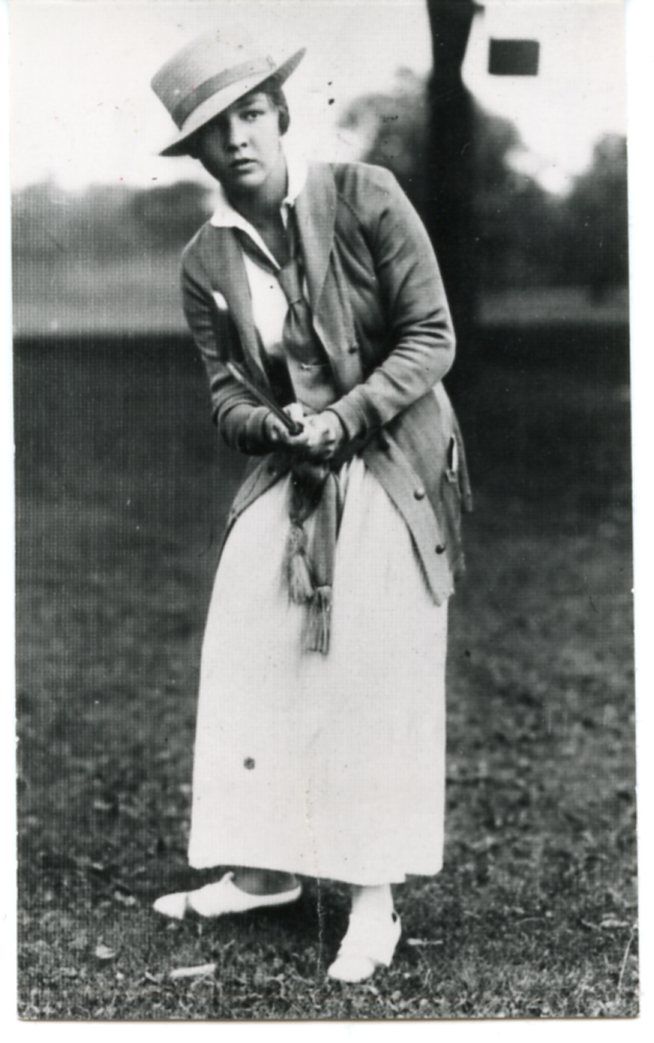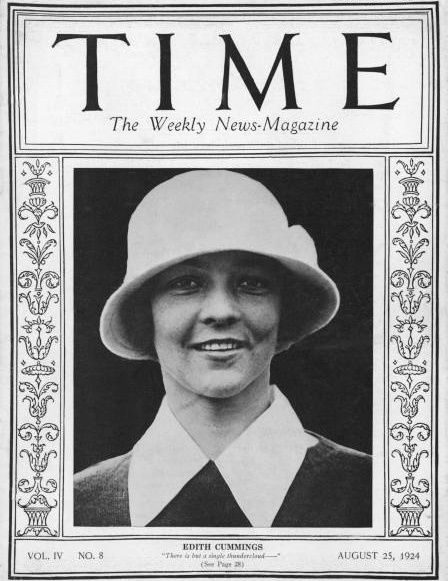Edith Cummings: The Fairway Flapper
“…there was a jauntiness about her movements as if she had first learned to walk upon golf courses on clean crisp mornings.”
--F. Scott Fitzgerald, The Great Gatsby

Edith Cummings (1899-1984).
One of the premier women’s golfers of the 1920s, Edith Cummings grew up around golf courses in Lake Forest. One of her first tournament victories took place at Onwentsia at age 17. Golf was a family affair – her brother Dexter captured the Inter-Collegiate title twice in the 1920s.
Though known as one of the “Big Four” Chicago debutantes in 1916 with friend and fellow Lake Forester Ginevra King, following school Cummings pursued tournament golf. Dubbed “the Fairway Flapper,” she competed against top female golfers of the day like Alexa Stirling, Marion Hollins, and Glenna Collett. After a narrow loss in 1922, Cummings beat the favored Stirling and Collett to win the 1923 U.S. Women’s Amateur championship.
Edith Cummings’ 1924 victory at the Women’s Western Amateur bolstered her renown enough that Time magazine featured her on the cover of its August 24, 1924 issue. It was a first for a female athlete.
Cummings is perhaps better known now, though, for literary immortalization of another sort. F. Scott Fitzgerald modeled his character “Jordan Baker,” a female golf champion, directly after Cummings. He had met her through Ginevra King, the inspiration for “Daisy Buchanan.”

Time Magazine, August 24, 1924.
In 1934, Edith Cummings married Curtis B. Munson, a businessman whose Munson Report prior to WWII advised against the Japanese internment policy.
Cummings and Munson largely faded from the spotlight later in life, becoming significant philanthropists. She also has an award named after her, the Edith Cummings Munson Golf Award, given annually to one of the top female collegiate golfers who excels in academics.